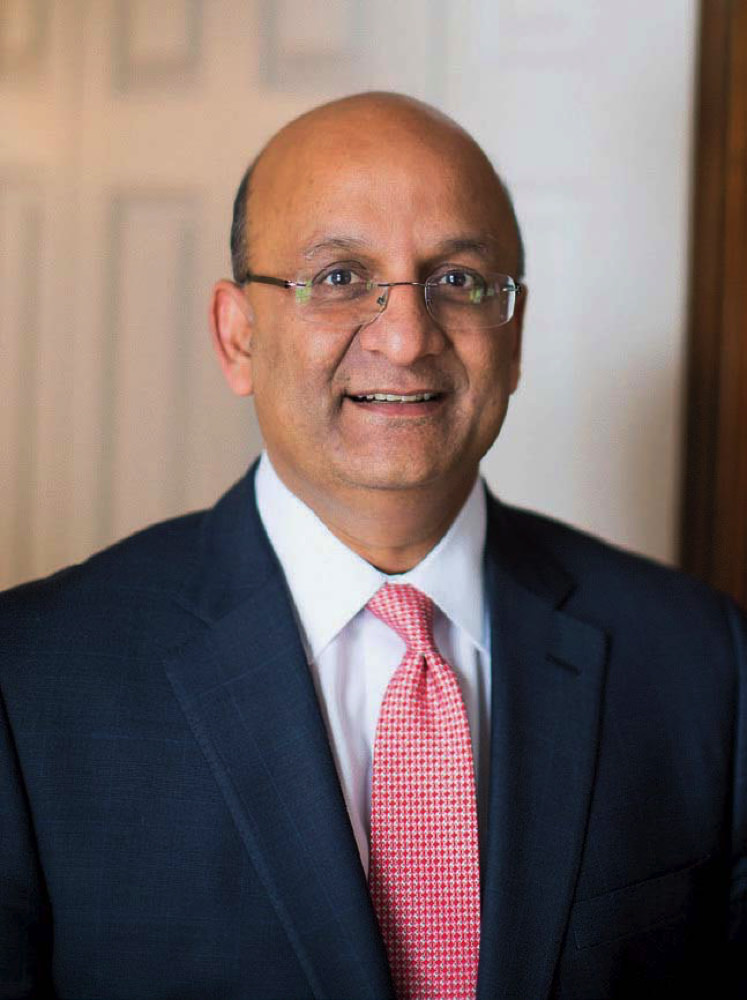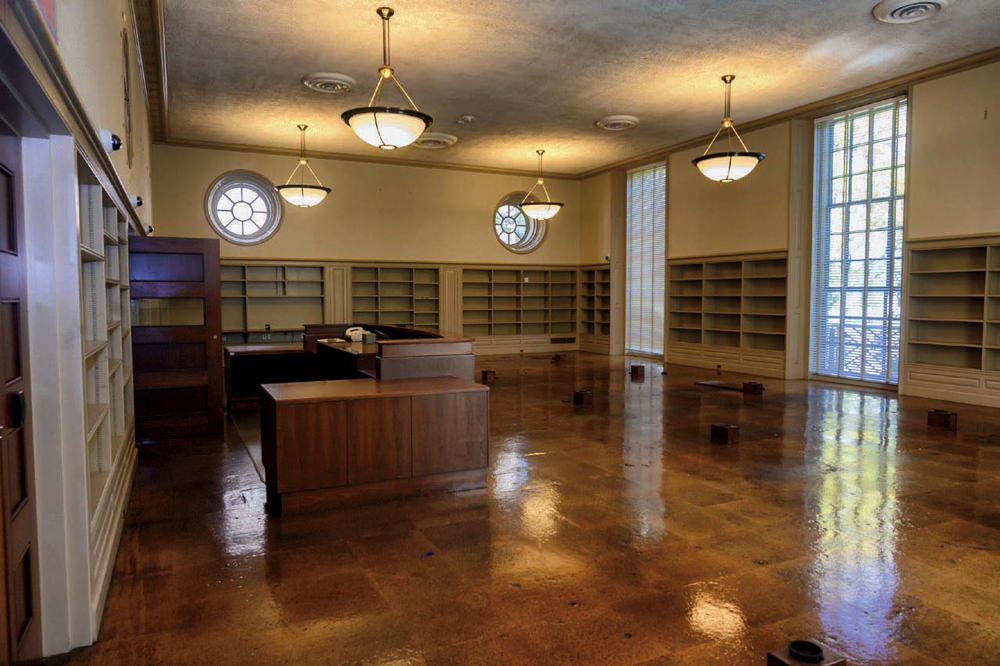Nobel Duo
Harvard scholars received the highest accolades this October, when Farber professor of medicine William Kaelin was announced as co-winner of the Nobel Prize in physiology or medicine, and Gates professor of developing societies Michael Kremer became co-winner of the Sveriges Riksbank Prize in Economic Sciences in Memory of Alfred Nobel (as the economics encomium is known). Kaelin, Sir Peter J. Ratcliffe, of Oxford, and Gregg Semenza ’78, of Johns Hopkins, were recognized for their research on “how cells can sense and adapt to changing oxygen availability. They identified molecular machinery that regulates the activity of genes in response to varying levels of oxygen,” fundamental discoveries that underpin understanding of cellular metabolism and physiological function. Kremer ’85, Ph.D. ’92, and his fellow honorands—Abhijit Banerjee, Ph.D. ’88, Ford Foundation international professor of economics at MIT, and Esther Duflo, Abdul Latif Jameel professor of poverty alleviation and development economics at MIT (the fifth married couple to have shared the prize in the same field)—were cited for “their experimental approach to alleviating global poverty.” Kremer’s field work, much of it in Africa, formed the basis for many of their joint breakthroughs; links to prior coverage of some of his work appear at harvardmag.com/nobels-19.
Allston Options
In mid November, Harvard’s Allston Land Company announced that it had winnowed the list of developers seeking to create the first, 14-acre phase of the Enterprise Research Campus on Western Avenue from nine to three, all with local experience: Tishman Speyer/Bellco, HYM, and Alexandria/National. The first developed Pier 4 on the Boston waterfront, and is pursuing a laboratory project in South Boston. HYM is involved with mixed-use projects at the downtown Boston Government Center garage, and the huge site of the former Suffolk Downs race track. And Alexandria, a national developer of life-sciences facilities, is a powerful force in Kendall Square; it is working with National Development on a life-sciences project in Boston. A final selection is expected by year-end. See harvardmag.com/erc-partner-update-19 for details.
Taking Harvard’s Pulse
The University’s Pilot Pulse Survey on Inclusion and Belonging, published in late October (https://pulse.harvard.edu/results), found that 77 percent of respondents agreed that “I feel like I belong at Harvard” (15 percent strongly, 37 percent agreeing, and 25 percent “somewhat” agreeing). Among the self-identified groups where less than 70 percent agreed were, according to the executive summary, “Genderqueer and Nonbinary respondents (53 percent), Muslim respondents (66 percent), Middle Eastern respondents (68 percent), Black or African American respondents (69 percent), and Bisexual respondents (69 percent).” Among student respondents, the sense of belonging, of authenticity, and of comfort in expressing one’s opinions was also inversely related to parents’ level of educational attainment, suggesting the opportunity, or need, to improve the Harvard experience of first-generation matriculants and those from under-resourced K-12 educations. In releasing the study, President Lawrence S. Bacow pointed to the 23 percent of the community who reported not feeling a part of it, and said there was “much room for improvement.” Among other efforts, he announced the search for a Chief Diversity and Inclusion Officer to lead such efforts.
Building Boundaries
As Harvard proceeds with academic and commercial development in Allston, as outlined in its master-plan agreement with Boston, its West Coast peer, Stanford, has encountered difficulties securing permission to grow from its regulator. That institution on November 1 withdrew its application to Santa Clara County for a long-term land-use permit, filed in 2016, that would have covered more than 2,000 units of housing, 2.3 million square feet of new academic space, and hundreds of millions of dollars in transit spending and community benefits during the next 16 years. But given differences of opinion on housing, traffic, and open space, no comprehensive agreement was forthcoming, so the university pulled its application ahead of a Board of Supervisors hearing.
A Decanal Decade

Harvard Business School (HBS) dean Nitin Nohria announced in November that he would step down at the end of the academic year, concluding an eventful decade of service. He oversaw introduction of FIELD, an experiential curriculum that complements the school’s legendary case-based pedagogy, and of HBX, its online instruction, even as residential executive-education facilities were expanded and renovated. A University citizen, Nohria helped secure the naming gift for the School of Engineering and Applied Sciences, and reached out to its dean and faculty to launch academic partnerships before they relocate to Western Avenue, across from HBS’s campus, next fall. He also emphasized changing HBS’s culture, its teaching cases, and the composition of its leadership to make it more inclusive and welcoming, and further enlarged its international presence—all while running a $1.4-billion capital campaign. An overview of his deanship appears at harvardmag.com/nohria-19.
Upping Financial Aid
Yale has liberalized its undergraduate financial-aid package, raising the income threshold at which families are expected to make no contribution to their children’s education from $65,000 (Harvard’s standard) to $75,000. It simultaneously altered its expected student contribution, from $4,450 during their first year at Yale College, and $4,950 in subsequent years, to $3,700 for all four years. Harvard College maintains a first-year term-time work expectation of $3,000, plus a $1,600 summer contribution; in the subsequent three years, students are expected to make a $3,500 term work contribution, and the summer contribution grades up from $2,400 (sophomore year) to $2,600 in the final two years.
On Other Campuses
The four Lord Foundations established by the late entrepreneur Thomas Lord have, upon the sale of his eponymous corporation, distributed $260 million in unrestricted funds (a development officer’s dream) each to long-time beneficiaries Duke, MIT, the University of Southern California, and the Cleveland Clinic.…Indiana University’s school of informatics, computing, and engineering received a $60-million naming gift from its alumnus, Fred Luddy, to establish a multidisciplinary artificial-intelligence initiative.…As Harvard investigates gifts from Jeffrey Epstein (News Briefs, November-December 2019, page 25) and considers, along with other institutions, whether previously named buildings or programs should be renamed, Brown has published its revised policies governing both subjects. Provost Alan Garber, who chairs Harvard’s gift-policy committee, has declined to make that group’s membership—or University policies, which are under review—public.…Brown also announced a plan to double enrollment of veterans by 2024, by extending need-blind admissions, increasing financial support, and making standardized tests optional for veterans who are applying.…The University of Pennsylvania now has a Carey Law School, reflecting receipt of a $125-million naming gift from the W.P. Carey Foundation. The gift is the largest ever made to a law school.
Gen Ed, Virginia Style
As the College rolls out its General Education course offerings this academic year (see harvardmag.com/new-gen-ed-19), the University of Virginia has adapted its New College Curriculum. First-year students will be required to take seminar-format courses covering “engagements” with aesthetics, differences, empirical and scientific subjects, and ethics—and must also satisfy a writing requirement, achieve proficiency in a second language, and demonstrate quantitative and computational fluency. They can do so through a variety of courses, but the architecture more nearly resembles the structure described on other campuses in “An Educated Core” (July-August 2017, page 47) than Harvard’s broader requirements.
Rare-Book Renovation

No, Houghton Library has not suffered a catastrophic theft. Rather, it is under renovation, inside (as in the reading room and lobby, shown here) and out (making it more accessible, when it reopens late next summer). A report on the plans appeared in “A Sense of Belonging” (May-June 2019, page 18). While the work proceeds, scholarly access to the collection is being provided from Widener Library, and some of Houghton’s teaching activities are based in the Harry Elkins Widener Memorial Room.
Nota Bene
Medical academy members. Ten of the 90 regular members elected to the National Academy of Medicine this October are faculty affiliates: Anthony P. Adamis, lecturer in ophthalmology; Elizabeth C. Engle, professor of neurology and ophthalmology; Daphne Adele Haas-Kogan, professor of radiation oncology; Tejal K. Gandhi, associate professor of medicine; Scott L. Rauch, professor of psychiatry and president of McLean Hospital; Peter L. Slavin, professor of health care policy and president of Massachusetts General Hospital; Benjamin D. Sommers, professor of health policy and economics; Beth Stevens, associate professor of neurology; Mehmet Toner, Benedict professor of surgery; and Catherine J. Wu, professor of medicine.
Honor roll i. The Welch Foundation, which underwrites basic research on chemistry, has conferred its Robert A. Welch Award on Friedman University Professor Charles M. Lieber and Armand Paul Alivisatos, executive vice chancellor and provost of the University of California, Berkeley, for their pioneering work in nanoscience and nanomaterials. They shared a $500,000 honorarium. Some of Lieber’s work, with important biomedical applications, was reported previously at harvardmag.com/lieber-17.
Addressing autism. Harvard Medical School will lead a University research program on the biological causes of autism-related disorders. The work is funded by a $20-million gift from K. Lisa Yang and Hock E. Tan, M.B.A. ’79, CEO of Broadcom; the initiative will be named in their honor. Pusey professor of neurobiology Michael E. Greenberg, chair of the department of neurobiology, will be the inaugural faculty leader. The Harvard program expects to collaborate with a similar center, funded by the same donors, at the McGovern Institute for Brain Research at MIT (Tan’s undergraduate alma mater).
Honor roll ii. Higgins professor of molecular and cellular biology Catherine Dulac (see “The Mr. Mom Switch,” May-June 2015, page 11) and Pusey professor of neurobiology Michael E. Greenberg—chair of the department of neurology, and inaugural faculty leader of the new autism program—were jointly awarded the Society for Neuroscience’s Ralph W. Gerard Prize for lifetime achievement in neuroscience.…Eni, the Italian oil and gas company, has conferred its Energy Frontiers award, for research on renewable energy sources and storage, on Sykes professor of materials and energy technologies Michael J. Aziz and Cabot professor of chemistry and professor of materials science Roy G. Gordon for work on an innovative battery technology.
Landscape laurels. The Cultural Landscape Foundation has established a biennial $100,000 prize in landscape architecture, named in honor of Cornelia Hahn Oberlander, B.L.A. ’47—a graduate from the Design School’s second cohort of women. It will be conferred beginning in 2021, the centennial of her birth.








